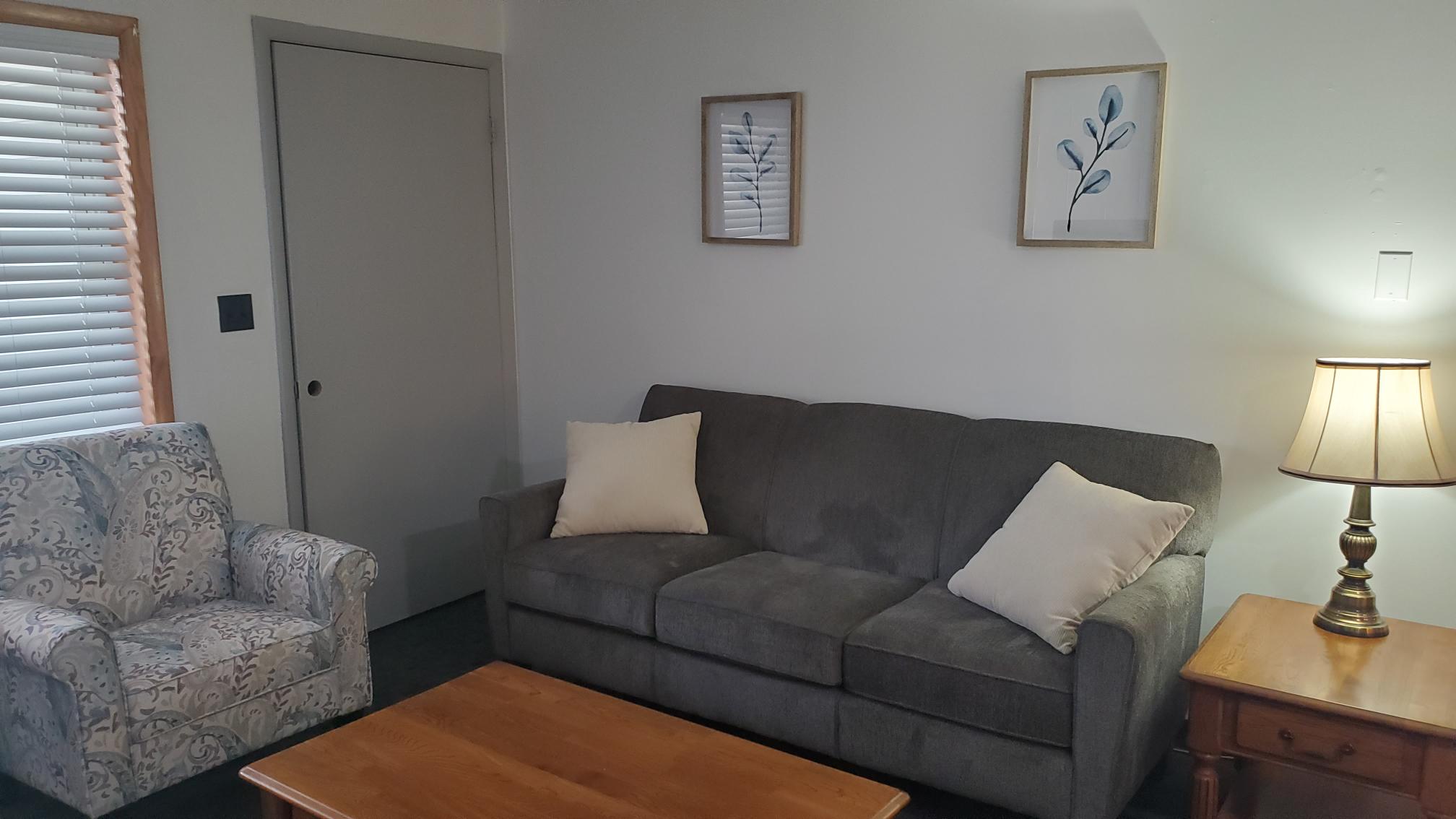

One of the apartments at the Women's Help Center, geared to be a longer-term place for people to get back on their feet as they find permanent housing.
By RICK KAZMER
United Way of the Laurel Highlands
When a government funding transition directed money away from the Women's Help Center, the team there used the news as a reason to step back and assess the agency's programs.
"For us, it was a positive," Executive Director Roxann Tyger said.
She has been leading the organization for a couple years now, and has directed traffic through the pandemic as the center works on the region's larger homelessness problem.
"The need was still there," she said about people coming to her agency for help, even after the funding left.
Now the center, located along Napoleon Street, has a 27-bed emergency shelter for women and children, as well as 10 apartments for men and women. It's part of a rejuvenated program offering from the center geared to meet the homelessness problem in the region.
The apartments, located at a couple different properties around Johnstown, provide a longer-term stay for people as they transition into permanent housing, for up to 18 months. The service includes case management support.
The United Way of the Laurel Highlands recognizes homelessness as a growing need in the region, reflected by the organization's volunteer community impact panel designating $25,000 for the center's Eviction Prevention Program.
Primarily, the homeless people Tyger and her team see are folks who can't be helped by someone else. Often, they are juggling kids, a job change and other life challenges -- while trying to find a place to live.
Women and children recovering from domestic violence are directed initially to Victim Services. For those unable to be assisted there, the Women's Help Center can provide services, including emergency shelter, food, clothing, advocacy, case management, and more.
"We are looking holistically on what is needed in the realm of housing," Tyger said.
That's where the newly developed Community Help Center comes into play. Tyger said it's intended to be a housing hub for the community, a place where people can go with questions, including about landlord negotiations, eviction prevention, mortgage resources, referrals and financial literacy.
"We want to help anyone in the community who has questions about housing," center Program Coordinator Theresa Tommarello said.
So far, nine of the 10 apartments are occupied. The last apartment is still being furnished. Tyger said that when they were built, her team made certain that they themselves would be comfortable living in them. "Our goal was to give people a safe, comfortable, home-like space where they can start to get back on their feet," Tyger said.
The services also include a food bank. The center receives up to 2,500 pounds of food each month.
Both women said that mental health is a big issue. People also wait too long to ask for help.
"I think a lot of people we see wait until they are completely overwhelmed. If we could get to some of those folks before they get too far into the crisis, it will probably be a quicker fix," Tommarello said.
As part of the organization's growth, the center became part of the Eastern Continuum of Care. It's a network of organizations in 33 counties working to end homelessness.
The center is addressing an emerging need identified by United Way's Community Impact process, powered by volunteers who help to guide the organization's allocations each year.
Homelessness remains a problem. The good news is that a partnership of agencies is working to address it.
"The heart of the housing hub is preventing homelessness," Tommarello said.
